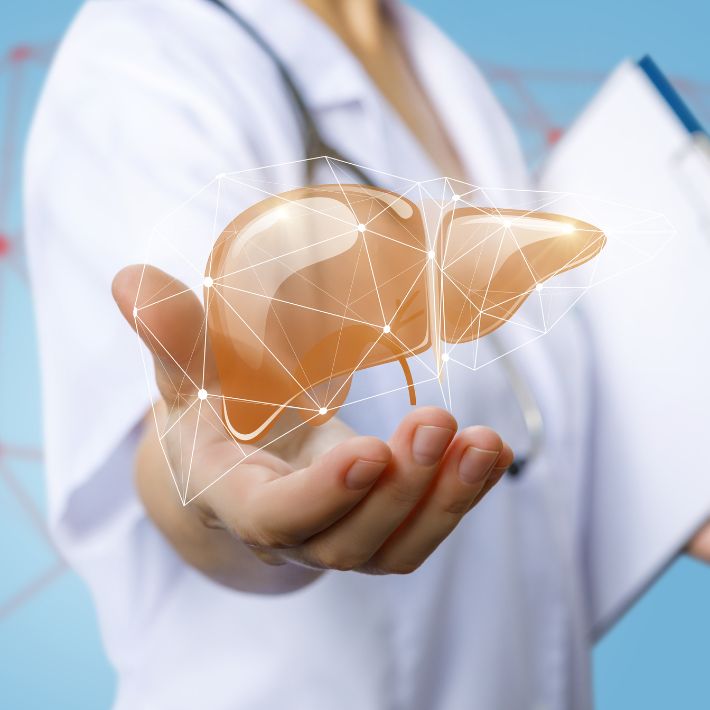LUMC researchers discover treatment against deadly liver disease NASH
&width=710&height=710)
NASH is an inflammatory liver disease that originates from unrecognized and untreated fatty liver disease. The disease often results from an unhealthy lifestyle with little exercise and a high-caloric diet. NASH leads to liver fibrosis and cirrhosis and eventually to liver cancer.
Anti-inflammatory molecule
A team of researchers, led by Dr. Martin Giera and Prof. Patrick Rensen of LUMC, along with researchers from Munich, San Diego, Groningen and Xi'an, have found a small molecule that prevents and treats NASH. This anti-inflammatory molecule has been successfully tested in preclinical research. The groundbreaking results were recently published in the leading scientific journal EMBO Molecular Medicine.
Fatty liver and inflammation
Years ago, researchers already discovered that so called synthetic LXR agonists inhibit inflammatory responses in the liver. However, the problem was that these agonists also caused the liver to produce excess fat. As a result, high amounts of fat and cholesterol ended up in the blood causing hypertriglyceridemia. Many promising treatments therefore failed before reaching the patients.
Beneficial effect
Researchers at LUMC have now succeeded in developing a small molecule that leads to an increase in a body's own LXR agonist, which inhibits inflammation in the liver but does not stimulate fat production. This beneficial effect has now been successfully demonstrated in a preclinical model.
Patent
Based on their discovery, Giera and Rensen and other researchers have applied for a patent for potential treatments for NASH and other inflammatory diseases. The next step is to further develop their findings through clinical trials so that this therapeutic strategy can eventually be offered to patients.